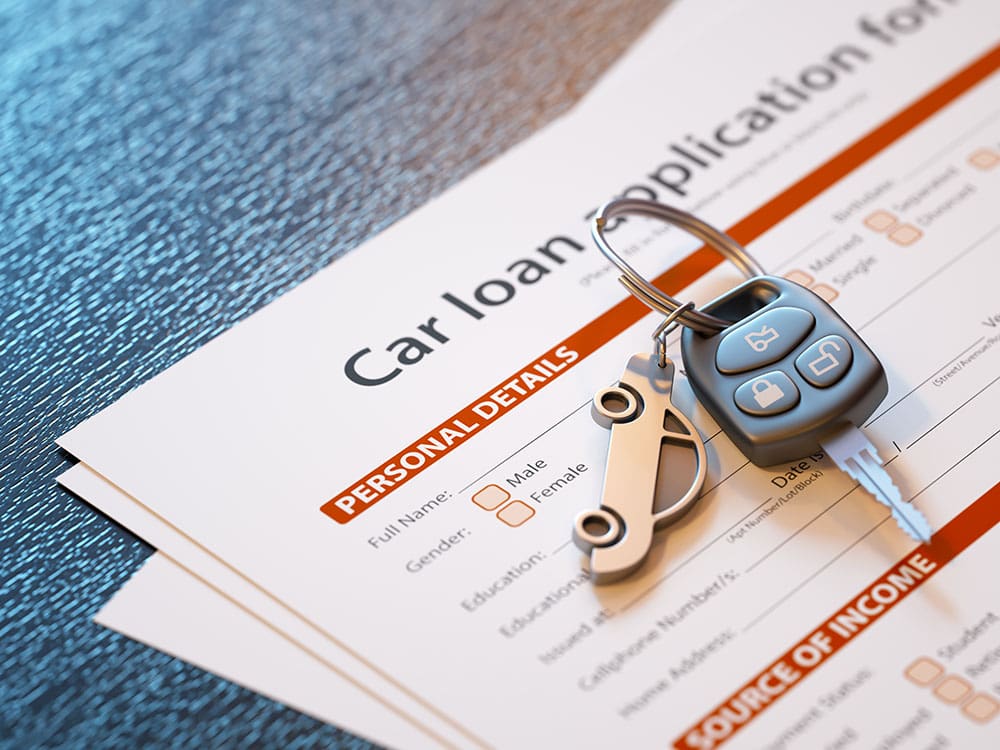How Much is the Average Car Payment in the US? (2025 Update)
-
Kristin Hitchcock
- Last updated:

The average car payment in the US is $667 for new cars and $515 for used models. However, the exact number can depend on the source. Many sources place the car payment for new vehicles even higher—closer to $800. There’s no national registry for car payments. Therefore, we must rely on third-party sources, such as credit reporting agencies.
However, certain people are more likely to use certain services, so their data is likely skewed.
Still, we can get a decent idea of how much a car payment is by looking at these third-party numbers. New cars likely cost between $600 to $800, on average. Used car owners save at least $150 a month on average.
Despite these averages, your car payment may be much higher or lower. It depends on many different factors involved.
Factors That Determine Monthly Car Payments
Many factors determine how much your car might cost you a month—not just the car’s value. Sometimes, you can adjust these metrics to bring your car payment down.
- Interest rate: How much interest you’re charged monthly will affect your monthly payment. Factors such as your debt-to-income ratio and credit score determine your interest rate. The higher your loan amount, the more difference the interest rate will have. You can often shop around to multiple lenders to find one with a good rate.
- Loan amount: Of course, how much your loan is also determines the rate. Typically, your rate is determined by dividing the loan amount over a set number of months. However, this only gives you your base interest rate. You’ll also have to determine the interest and any fees.
- Place of purchase: Where you purchase the car also matters. Some lenders charge more for used car lot purchases. If you’re purchasing from a private seller, your rates are often even higher. Purchasing from a car dealer often provides you with the best rate, as they often have deals with lenders to help out their customers.
- Loan length: You can select many lengths for a loan. Your payment is then divided over the number of months you select. Therefore, shorter loans cost more each month, while longer loans cost less each month. Of course, the longer you have the loan, the more interest you will pay.
- Credit score: Your credit score will affect your interest rate, which determines the loan amount. Luckily, the difference isn’t substantial. Deficient credit scores may cost another $50 a month compared to excellent credit scores. However, it does depend on the vendor.

Loan Term and Monthly Payments
How long you decide for the loan to last matters a lot. You can choose a longer term to help lower monthly payments. The average loan term is now about 70 months for this reason—for both new and used cars. However, this is much longer than what experts tend to recommend.
Cars tend to lose value over time. In most markets, cars lose about 20% of their value yearly. After several years, this could mean you owe more on the car than it’s worth if you choose a longer loan period. If you then totaled the car, insurance would not provide enough money for you to pay off your loan.
Furthermore, this also means you’d be unable to sell the car unless you forked up the difference. Therefore, even if you didn’t total the car, you would be stuck with it.
Similarly, you’d pay more money on interest with a longer loan. By doubling the loan period, you also double the interest cost. If you choose 60 months, you may lower your payment by about $100 a month compared to a 36-month loan. However, you’d also pay double the interest.
Therefore, while it may seem like a good idea to take out a longer loan, you could pay for it in the long run. It is recommended not to take out a loan longer than 36 months on a used car and not longer than 60 months on a new one. Of course, the shorter the loan, the better in the long run. Therefore, we highly recommend choosing the shortest loan period you can afford.

Do Credit Scores Affect Car Payments?
Your credit score does affect car payments to some extent. However, the difference isn’t that much. If you have an inferior credit score, you may pay an extra $30 or $20 compared to someone with a perfect credit score. Therefore, while it does affect it (because it increases your interest), a poor credit score shouldn’t keep you from getting a loan.
You won’t be paying hundreds more like some sources seem to claim.
Of course, you should take steps to raise your credit score when possible. Make payments on time and check your credit score often. Disputing anything on your credit record will take time. Therefore, you should check it long before you plan on purchasing a car. The moment you’re taking out a loan is not the time to dispute mistakes on your credit score.

What is a Good Monthly Car Payment?
A good monthly car payment is one that you can afford. Only you know your financial situation and what you can afford each month. Therefore, consider your budget and any debt you currently have. Often, it is better to give yourself a bit of wiggle room instead of getting the most expensive option you can afford. Then you’ll have some extra money each month for repairs and other necessities.
With that said, the expert recommendation is to spend no more than 10% of your monthly take-home pay on a car payment. This is the amount you get deposited into your bank monthly after taxes. You should not spend more than 15% or 20% on your transportation costs, including insurance and gas. Remember, if you purchase a new car, your insurance will likely be higher than on a used car.
However, just because this is recommended doesn’t mean it’s what you can afford. You should be cautious not to overextend just because some expert said you could afford it. If you’re spending a lot of money in another area of your life, you may need to cut down on car expenses to make up for it.
 Conclusion
Conclusion
Car payments have increased steadily over the years. The term of the loans has increased, as well. The average loan term is now closer to 70 months—almost a year longer than the 36- to 60-month suggestion.
Several factors can affect your car payment. For instance, your loan amount and term will affect it the most. Simply put, your payment will be the loan amount spread across the months you choose for the loan. However, the interest rate also gets added, raising the payment slightly. The interest rate is affected by the car you’re purchasing, where you’re purchasing it from, and your credit score.
Often, there is a bit you can do to affect the interest amount. You can shop at dealerships with deals that lower interest. However, your loan amount is often set based on your down payment, trade-in value, and the car’s price tag. Once those things are in place, there isn’t much you can do to change them (without saving up more money for a bigger down payment).
Featured Image Credit: ViDI Studio, Shutterstock
Contents
